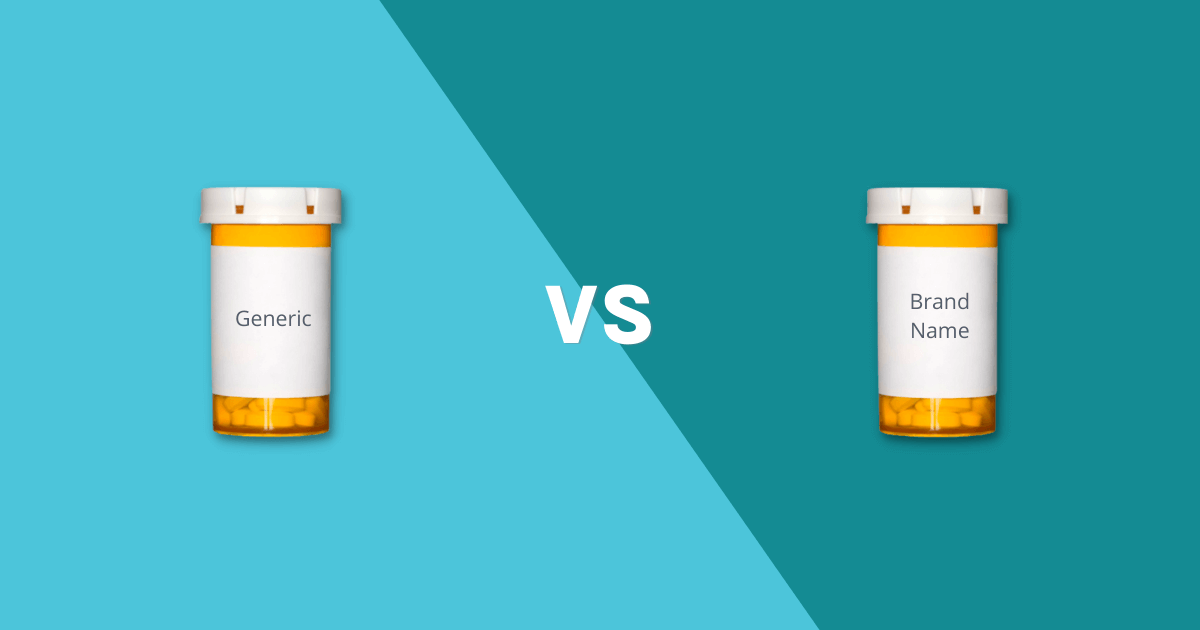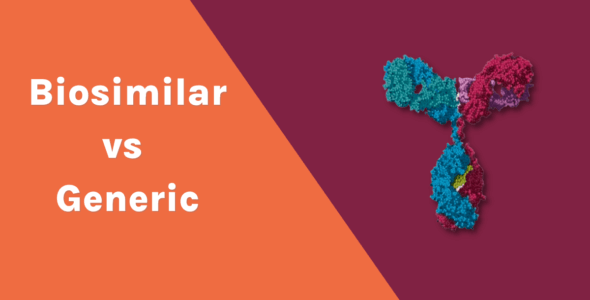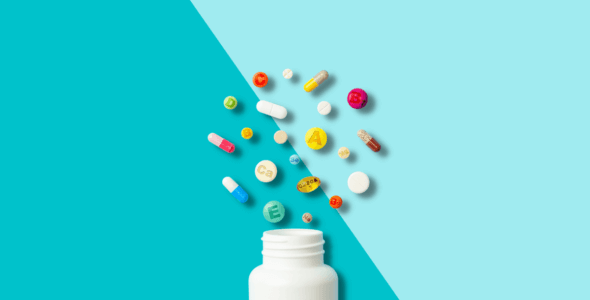Generic vs brand name drugs
Table of contents
There are often a lot of questions surrounding generic and brand-name medication. Are generics really as effective? Which one is better? When is one preferable over the other? There are only two main differences between generic and brand-name drugs: different inactive ingredients, or preservatives and cost. Let’s take a deeper look into the differences between generic medications and brand-name versions of prescription drugs.
What is a generic drug?
A generic drug is a medicine that contains the same active ingredient as the branded medicine and is a chemical copy of the branded drug. e.g. the brand name product Glucophage is used to treat diabetes but its generic name is metformin.
Generic drugs can look quite different from their brand-name counterparts, despite having the same active ingredient, strength, form, uses, route of administration, and labeling. United States trademark laws do not allow generic drugs to look exactly the same as the equivalent brand-name drugs.
Generic drugs are versions of brand-name drugs and may offer cost-saving treatment options to patients. Pharmaceutical companies begin with exclusivity protection for many years to allow them to profit from their research and development of the drug. New drugs, incur significant costs in research, development, and clinical trials. After patent expiry, generic drug manufacturers can enter and gain market share.
Applications from generic drug companies submitted to the U.S. Food and Drug Administration (FDA) for approval must show that:
- The generic drug is “pharmaceutically equivalent” to the brand
- The manufacturer is capable of making the drug correctly
- The manufacturer is capable of making the drug consistently
- The “active ingredient” is the same as that of the brand
- The right amount of the active ingredient gets to the place in the body where it has an effect
- The “inactive” ingredients of the drug are safe i.e. fillers, binders, and flavors
- The drug does not break down over time
- The container in which the drug will be shipped and sold is appropriate
- The label is the same as the brand-name drug’s label
- Relevant patents or legal exclusivities are expired
What is a brand-name drug?
Brand medications are the first of their kind, the creators, the inventors. The pharmaceutical company that discovers this drug gets to “brand the name” of the drug. Pharmaceutical companies invest a lot of time and money to become the first to develop a drug. The process involves drug discovery research and development, manufacturing costs, and then finally marketing of the product.
The FDA approval process involves rigorous evaluation of clinical trial findings, examination of the drug’s purity, stability, strength, and manufacturing processes before approving the medication. Once the drug is granted FDA approval the company can give the medication a brand name and begin marketing. The brand is protected by a patent so other drug manufacturers cannot produce a generic version and duplicate the drug.
The patent gives the drug company an exclusivity period in which they can sell their drug products and get back the money invested during drug development and generate a profit. Like any business, drug companies need to generate a profit to survive.
Your pharmacist can answer any concerns you have about brand or generic medications and other medical advice. You can also visit the FDA website www.fda.gov or call 1-888-INFO-FDA for more information.
FAQs
Do all brand-name drugs have a generic equivalent?
No. Generic drugs usually become available after patents protecting a brand-name medicine expire.
Can I save money by asking my doctor for a generic alternative?
Yes. Lower cost is associated with generic medicines than brand-name drugs because studies and trials don’t have to be repeated to make generic drugs.
Is it always better to choose a generic over a brand-name medication?
No. For drugs with a narrow therapeutic index, it is better to stick with a brand-name drug if your healthcare provider recommends it.
Is my doctor aware of what consumers and health insurance costs are for drugs?
No, not always. Prescribing healthcare professionals can not keep track of drug prices due to the vast number of drugs available although they might be made aware by patients who can’t afford their copays.
Do generic drugs look the same as their brand-name counterparts?
No. Despite having the same active ingredient, quality standards, strength, uses, dosage form, route of administration, side effects and labeling both look quite different from one another.
Do generic drugs save the healthcare system money?
Yes. Generic drugs have lower prices and have saved the US healthcare system $253 billion in 2017 and more than $1 trillion in the past decade. In a recent study, it was found Medicare savings of $1 billion annually could be made if generic prescriptions were consistently provided over brand name ones.
Medically reviewed
A medical professional has reviewed this article.


Jamie Winn, PharmD
Jamie Winn, PharmD
Dr. Jamie Winn received his Doctor of Pharmacy in 2002 from the University of South Carolina College of Pharmacy, Columbia, SC. Jamie is a medical reviewer for NiceRx.



